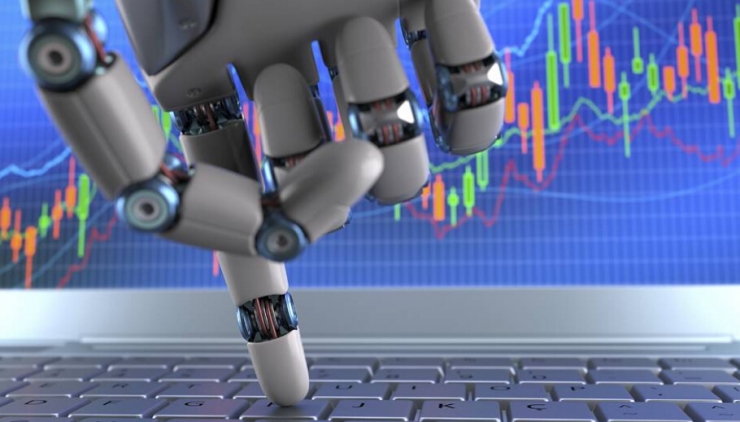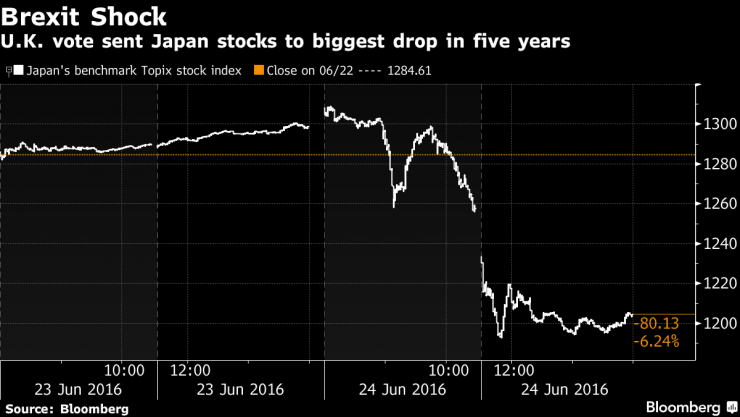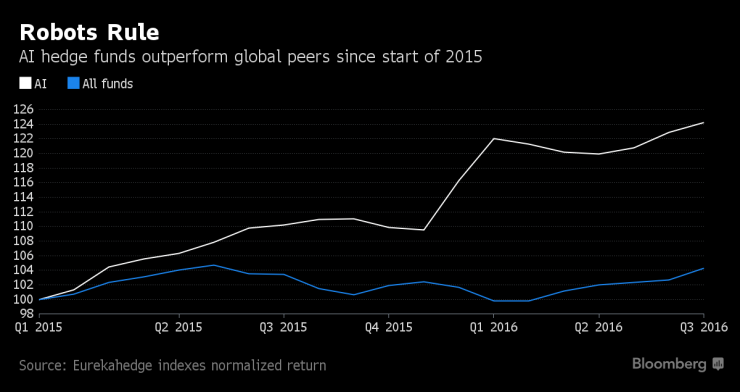
On the morning of June 24, when Brexit was released , Yoshinori Nomura wanted to cry because the market situation was completely against him. More precisely, it is against the program developed by the hedge fund manager. On the eve of the upward trend in the market, the procedure sold Japanese stock index futures. Nomura anticipates this, but still decides not to intervene in the decision.
Then in a flash, the situation reversed. When the vote showed that Britain will leave the European Union, the Japanese stock market ushered in the largest decline in five years. Nomura’s Simplex Futures Strategy Fund’s daily yield of 3.4% was the best in three months.
"The machine is right," Nomura said later. He spent more than three years refining transactions and now manages about $35 million in funds, and is one of the first funds in Japan to use AI (artificial intelligence) technology. He holds a master's degree in physics and has three patents under his name, including an algorithm for predicting popular songs in Japan.

The Impact of Brexit on Japanese Stock Market
Nomura is not as famous for hedge funds that use AI technology as Renaissance Technologies and Two Sigma Investments, but the physicist has used his own methods to prove the future of wealth management. If he succeeds in Japan, then the ever-growing AI technology may be successful in the world because of the turmoil in the market caused by the BOJ's stimulus measures. Hedge funds always drag their peers, and institutional investors are known to avoid risks.
43-year-old Nomura put his own program in the world's most chaotic market, where the stock fluctuations ranked first in the major exchanges, the Topix index returned 10% last year, but this year has fallen 16% . This volatility is detrimental to hedge funds. Japan's Eurekahedge Pte Hedge Fund Index fell 3.5% this year, but it rose by 2.6% globally, which is also the worst performance since the Japanese financial crisis.
It is very difficult to advance Nomura's strategy in this situation, especially if there is no precedent. Some institutional customers are particularly skeptical of such unfamiliar products, and even require that AIs be avoided in promotional materials. There are very few AI funds around the world. People who use machine learning technology in the early stages need to prove their achievements and make investors take them seriously.
AI funds are also difficult to distinguish from the more general "quantitative" investments. Both allow the computer to make investment decisions, but the AI ​​program goes one step further than quantifying the software. It promotes itself in transactions and imitates the learning ability of the human brain.
Nomura's strategy seems to integrate quantitative analysis and AI. The Simplex Fund, like many of its peers, uses a lot of data to answer a simple question: buy or sell. The program makes two decisions each day to buy or sell the TOPIX Index futures. The position size is controlled at 50% of the fund's assets.

AI Hedge Fund Performance
If the program is designed, its predictive power will increase over time. Although it is difficult to draw conclusions from several months of trading, the early results are still encouraging. Since the program was used in April, the Nomura Fund’s yield has reached 1.9%, with an expected annual return of 7%. The global hedge funds relying on AI also seem to have done a good job. The 12 funds have achieved a 7% return this year.
This may also explain why some well-known institutions are adopting AI technology. For example, Point72 set up a fund to invest in AI companies in March this year. Although it is challenging to promote strategies that others are not familiar with, Nomura predicts that the size of funds managed will double at the end of the year, attracting the attention of some regional banks and insurance companies. Machines will become more and more intelligent, and investment patterns will change sooner or later.
Via bloomberg
